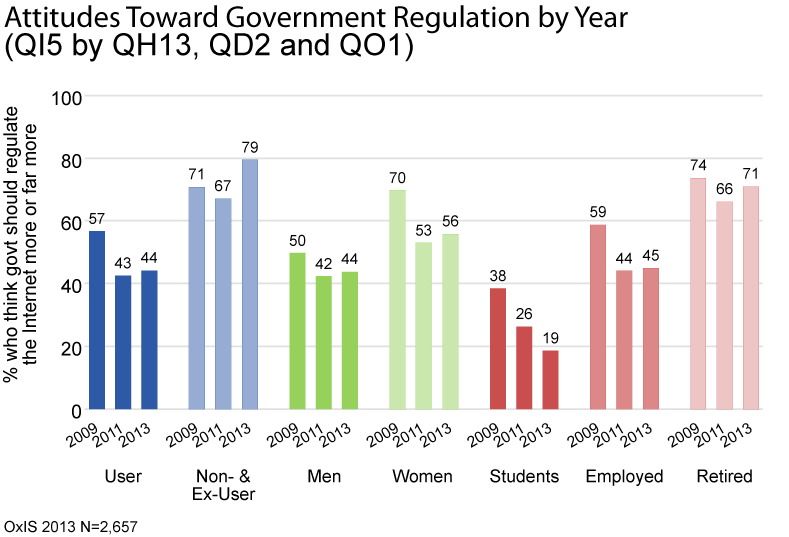Internet regulation has become an increasingly controversial topic as governments have sought to deal with issues arising from the growing centrality of the Internet and the perceived risks to children and other important segments of the public. While users are subject to existing laws and regulations, such as laws against consumer fraud and product misrepresentation, many feel that laws written for a pre-Internet world fit poorly in the online environment, and are difficult to enforce across national boundaries.
Part of the debate is over where the Internet needs new regulatory approaches. Between 2011 and 2013 there appears to have been no change in support for more government regulation of the Internet amongst British Internet users (43% in 2011 vs 44% in 2013), but a sharp rise amongst non- and ex-users (67% in 2011 vs 79% in 2013). Such a rise in support is evident across several demographic groups, with only students showing greater resistance towards government intervention (19% supported more government regulation in 2013, compared to 26% in 2011).
Non- and ex-users, with less personal experience online, are the most susceptible to calls for greater regulation of the Internet, as are retired people, who have steadily backed more government regulation of the Internet.

